2023/24 Program Planning Meeting - CrimSL Research Cluster for the Study of Racism and Inequality
When and Where
Description
In an interest to plan programming for the upcoming 2023-24 academic year, the CrimSL Research Cluster for the Study of Racism and Inequality invites you to participate in a planning meeting.
The meeting will be held on Friday, April 21st at 12:00 noon in a hybrid format: In person at the CrimSL Erikson seminar room, CG 265, 14 Queens Park Crescent West, 2nd floor; and via Zoom.
Researchers, students, faculty, staff, community members, all are welcome! We are eager to hear what you think that the cluster ought to be doing in the coming years and to discuss how you might want to get involved.
REGISTER NOW TO ATTEND (IN PERSON OR VIRTUALLY).
Introduction: CrimSL Research Cluster for the Study of Racism and Inequality
The 2020 killing of George Floyd in Minneapolis at the hands of local police spearheaded mass protests around the world. Only the latest in a long history of police and structural violence against people of color in the Americas, the gruesome and senseless assassination finally brought home the need to address the very foundations of racial inequality right here at home. The protests that followed from the murder of George Floyd and, closer to home, the death of Afro-Indigenous Regis Korchinski Paquet in Toronto, reached the footsteps of the Centre for Criminology and Sociolegal Studies, prompting a reckoning among faculty, graduate students, and staff. How could an institution devoted to the study of justice systems actively and conscientiously work toward a society where such racial violence, heir to colonialism, would be eradicated? In other words, how could the Centre itself be decolonized and its work put directly in service of racial and social justice and the remediation of all forms of disenfranchisement and inequality? In response, the Centre for Criminology & Sociolegal Studies recently launched an interdisciplinary research and teaching cluster charged with the development of both scholarship and policy on state infrastructures. Entitled, The Cluster for the Study of Racism and Equality, the mission is to situate contemporary expressions of inequality and structural violence within legacies of colonialism, capitalism, and oppression, and to formulate pathways toward mitigation and ultimately, eradication.
Taking academic knowledge and the curriculum beyond theory, and with the goal of engaging productively with racialized communities in Toronto and beyond, one of the goals involves aligning scholarship and pedagogy with social justice. The following are the thematic cluster areas that cluster work with explore:
(1) Institutional infrastructures of racialization and inequality
Building institutional knowledge from within is imperative when the goal is gradated social change. All too often law and justice institutions do not lead to social change but actually reinforce a status quo, thereby having the impact of maintaining racialized and unequal hierarchies of power. Ideologies, policies and practices designed to lead to justice need to be placed under the microscope so as to explore avenues for real forms of long-term change. Project areas include: disciplinary and policing practices, the judicial systems, prison complexes, surveillance and tracking systems, military strategies, and local, national, and international policy-making.
(2) Youth, Racialization, and the Process of Socialization
It is during the socialization process – the period between childhood and adulthood when the state is responsible for turning children into productive members of society- that deep-rooted notions of the individual, their role in society, and life horizons take hold. In Canada, as in the rest of the world, race, class, gender, disability and other markers of difference may frame the experience of incorporation to the polity as well as determine social inequalities that are not easily surmounted. While many studies, as well as policies, focus on youth as objects, we purport to situate youth, specifically racialized and marginalized youth, at the center of inquiry. Institutional, political, and legal frameworks like education and justice systems -e.g. the juvenile justice system, the schoolprison pipeline, immigration, and educational access, etc- are subthemes supported by this cluster.
(3) Decolonization and Knowledge production
Sustaining human rights and addressing the structural discrimination and violence experienced globally by indigenous peoples, people of color, women and girls, and other victims of colonialism is a guiding principle of this cluster. As traditional disciplines, particularly in the humanities and social sciences, are grappling with their colonial and racist legacy that permeates both methodologies and foci, non-academic and critical forms of knowledge should be brought forth to destabilize the former. This entails an awareness of both positionality and plurality, with the goal to not just deconstruct but to transform and transcend. The way forward, as far as this cluster is concerned, entails: (1) a pursuit, by members of the academy of collaborative, hybrid, and critical approaches to knowledge production, and (2) a challenge to both the historical foundations and contemporary interdisciplinary practices of sociolegal studies, so as to formulate an anti/decolonial field of studies, committed to social justice outcomes. A specific focus on indigenous knowledge – the knowledge of those whose ancestral lands we occupy- should be a priority. To that end, collaboration, reconciliation, and cooperation with First Nation, Aboriginal, and Métis people, all Indigenous victims and survivors of colonial violence and dispossession across the world, must play an important role in guiding the process of this sub-cluster design. CrimSL acknowledges lived experiences and recognizes Indigenous Peoples as knowledge producers hence efforts to create spaces for their voices to exist within the Cluster.
(4) Social Movements, Community Activism, and Critical Public Spheres
Understanding the local and global formation, development and impact of (1) social movements, (2) grassroots activism, and (3) public discourse and publicity is key to producing and reproducing positive change on a mass scale. Research projects in this area will both examine and engage with activist initiatives around the world, from movements for justice, to local and indigenous antiracial, environmental, and pro-equality organizing, to indigenous media and political advertising.
Questions?
Please email: sharon.matshipi@mail.utoronto.ca.
For more information: https://www.crimsl.utoronto.ca/research-publications/research-crimsl/crimsl-research-cluster.


